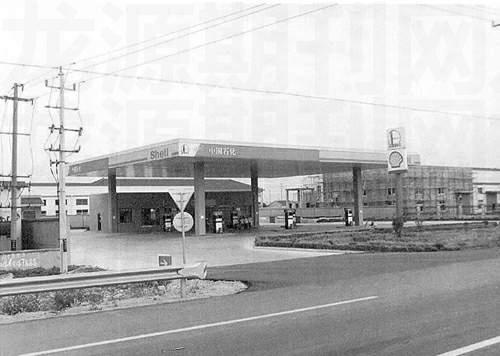China’s Got Foreign Capital in Product Oil Retailing Market
2009-01-27

The foreign oil companies are accelerating their paces into the Chinese product oil retailing market, with the hope of finding more profits and better development chance in this country.
The foreign capital is looking for its way into the Chinese retailing market of product oil. On October 13, Shaanxi Yanchang Petroleum (Group) Co., Ltd. (hereafter Yanchang Petroleum), Shaanxi Tianli Investment Co., Ltd. (hereafter Shaanxi Tianli) and Shell (China) Co., Ltd. (hereafter Shell) declared together that the joint venture set up by the three parties – Shaanxi Yanchang Shell Petroleum Co., Ltd, – has already set up ten gas stations in Shaanxi. According to the plan, the joint venture is going to set up and operate 100 gas stations in Shaanxi.
According to the report from Shanghai Securities Journal, this is the first time that the three parties confirmed the their cooperation simultaneously after years rumors. The source said that Yanchang Petroleum and Shell signed the frame agreement in establishing a retailing enterprise of the product oil early in 2007. At that time they formed the plan to build and operate 100 or so gas stations in Shaanxi. Afterwards, the two parties have been actively promoting this matter, but the progress is comparatively slow. With the declaration on October 13, the above-mentioned news was finally confirmed.
According to the report, the three parties signed the agreement of joint venture in July 2008 and got the approval of operation from the government at the end of 2008. Yanchang Petroleum held 46% of the joint ventures shares, Shaanxi Tianli took 9% and the other 45% shares belonged to Shell. The gas stations operated by the joint venture will adopt Shells healthy, safe, secure and environment-friendly management system and its standardized customer service process.
“Our cooperation with Shell can not only help to sell our products, but also avail us in learning the management experiences and standardized service of Shell. A win-win situation is the first but last purpose,” said Shen Hao, board chairman of Yanchang Petroleum.
In many experts eyes, this is a sign of the foreign oil giants to take faster paces into the Chinese oil retailing market after the clearance of the new price forming system of product oil in China.
“Several years ago, Shell and BP once established the cooperation with the Chinese domestic oil giants China National Petroleum Corporation (CNPC) and China Petroleum & Chemical Corporation (Sinopec) in building gas stations in Zhejiang. But due to the unclear price forming system and some other factors, the number of the joint-venture gas stations was not further increased. With the issuance of the policies which generate the new product oil price forming system, the upstream profits of the product oil is guaranteed. Without the last hurdle, the foreign companies can get into the Chinese product oil retailing market without any hesitation and resistance,” said one of the experts.
It is said that Yanchang Petroleum and Shaanxi Tianli will put a large amount of investments in purchasing the Sichuan branch of Shell, based on which they will set up a new company – Yanchang Shell (Sichuan) Petroleum Co., Ltd. The allocation of shares of each party is the same with the joint venture mentioned above. That means the gas stations built by Yanchang Petroleum, Shaanxi Tianli and Shell will cross the border of Shaanxi Province and find their locations in all over China.
Shaanxi-based Yanchang Petroleum, with nearly one hundred years history, is one of the four enterprises having the qualification to explore and exploit oil and natural gases in China. It is under the administration of Shaanxi provincial government. Shaanxi Tianli is an affiliated company of the state-owned Tianli Group. It is specialized in project investment, project financing and capital operation. As one of the largest oil company in the world, Shells strength in capital and technology is beyond question. The three parties all have certain strength. No wonder the experts all hold optimistic opinions towards their cooperation.
But some experts are worrying about the private-owned gas stations in China. It was more than once reported that the private-owned gas stations in China are squeezed by the state-owned gas stations, especially the ones of CNPC and Sinopec. Many of them are confronted with the insufficient capital to maintain their operation. Some are even not able to provide oil for their customers. “Now the foreign oil giants joined in the industry, making the competition more furious than ever before. The outlook of the private-owned gas stations is bleaker than before,” said one of them.
